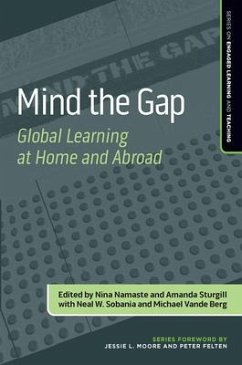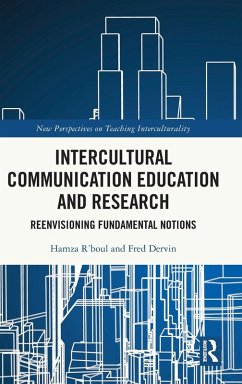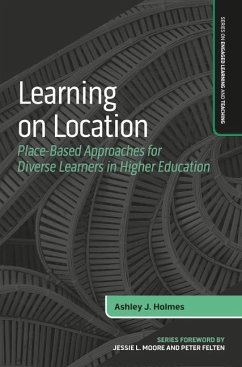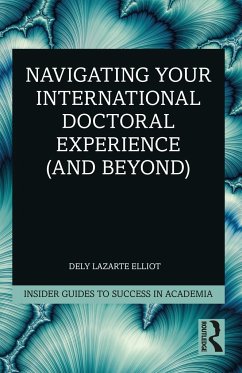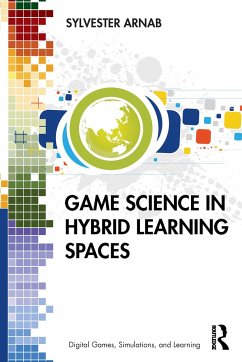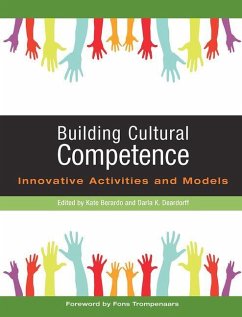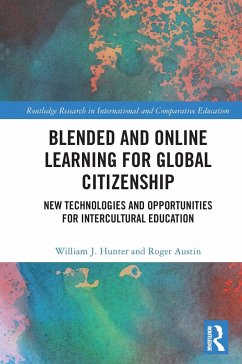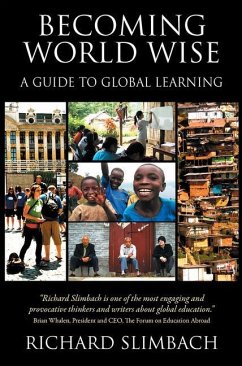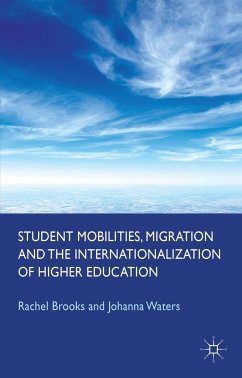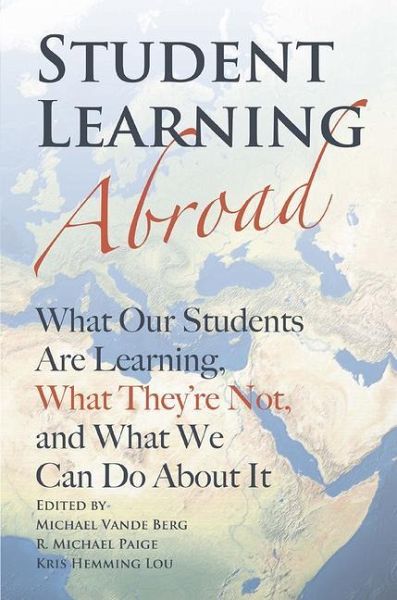
Student Learning Abroad
What Our Students Are Learning, What They're Not, and What We Can Do About It
Herausgegeben: Vande Berg, Michael; Paige, R. Michael; Lou, Kris Hemming
Versandkostenfrei!
Versandfertig in 6-10 Tagen
32,99 €
inkl. MwSt.

PAYBACK Punkte
16 °P sammeln!
A central purpose of this book is to question the claims commonly made about the educational benefits of study abroad. Traditional metrics of enrollment increases and student self-report, and practices of structural immersion, are being questioned as educators voice growing uncertainty about what students are or are not in fact learning abroad. This book looks into whether these criticisms are justified-and what can be done if they are.The contributors to this book offer a counter-narrative to common views that learning takes place simply through students studying elsewhere, or through their e...
A central purpose of this book is to question the claims commonly made about the educational benefits of study abroad. Traditional metrics of enrollment increases and student self-report, and practices of structural immersion, are being questioned as educators voice growing uncertainty about what students are or are not in fact learning abroad. This book looks into whether these criticisms are justified-and what can be done if they are.The contributors to this book offer a counter-narrative to common views that learning takes place simply through students studying elsewhere, or through their enrolling in programs that take steps structurally to "immerse" them in the experience abroad.Student Learning Abroad reviews the dominant paradigms of study abroad; marshals rigorous research findings, with emphasis on recent studies that offer convincing evidence about what undergraduates are or are not learning; brings to bear the latest knowledge about human learning and development that raises questions about the very foundations of current theory and practice; and presents six examples of study abroad courses or programs whose interventions apply this knowledge. This book provokes readers to reconsider long-held assumptions, beliefs and practices about teaching and learning in study abroad and to reexamine the design and delivery of their programs. In doing so, it provides a new foundation for responding to the question that may faculty and staff are now asking: What do I need to know, and what do I need to be able to do, to help my students learn and develop more effectively abroad? Contributors:Laura BathurstMilton BennettGabriele Weber BosleyJohn EngleLilli Engle Tara HarveyMitchell HammerDavid KolbBruce La Brack Kris Hemming LouKate McClearyCatherine MenyhartR. Michael PaigeAngela PassarelliAdriana Medina-López PortilloMeghan QuinnJennifer Meta RobinsonRiikka SalonenVictor SavickiDouglas StuartMichael Vande BergJames ZullWhile the authors who have contributed to Student Learning Abroad are all known for their work in advancing the field of education abroad, a number have recently been honored by leading international education associations. Bruce La Brack received NAFSA's 2012 Teaching, Learning and Scholarship Award for Innovative Research and Scholarship. Michael Paige (2007) and Michael Vande Berg (2012) are recipients of the Forum on Education Abroad's Peter A. Wollitzer Award.





